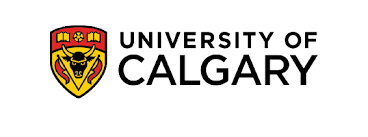University of Calgary: UCalgary engineering prof hopes to create a cleaner tomorrow with nanomaterials
Dr. Nashaat Nassar recalls a time when the idea of having industry working with post-secondary students was almost sacrilegious.
When he was a student, the Schulich School of Engineering professor spent more time on hypothetical situations and solutions, and less on the practical.
Over the past few years, Nassar, PhD’08, has noticed a gradual shift the other way as universities, governments and industry see the value in training students and postdoctoral fellows to become the future workforce through hands-on experience.
As full professor in the Department of Chemical and Petroleum Engineering, Nassar is hoping the shift will pay dividends as he recently received three Natural Sciences and Engineering Research Council of Canada (NSERC) Alliance grants worth nearly $3 million. He has also received two other Mitacs Elevate grants and one grant from America Chemical Society-Petroleum Research Fund.
Cleaner energy processes with nanomaterials
Nassar’s first proposed research work is expected to focus on Alberta oilsands recovery using nanomaterials for bitumen upgrading for thermal processes.
Working with the energy industry, Nassar is hoping to use less water and, in turn, generate fewer greenhouse gas emissions.
“This innovation could transform the oilsands industry by providing a practical, environmentally friendly, cost-effective — yet highly efficient — approach to reducing both harmful solid waste hydrocarbons and gas emissions,” he says.
The second project is aimed at reducing friction in the wellbore during stimulation and drilling for oil and natural gas resources.
Nassar says companies spend millions of dollars every year on friction-reducers used in their operations, so he hopes using nanoparticles will reduce cost, as well as water and energy consumption.
The third grant-supported project is focused on converting hydrocarbon solid waste into value-added product.
“Carbon is an unpleasant word when it is in the gaseous form, but, in solid form, it is building materials that we use every day,” Nassar says. “If we think of the soil-carbon pool, it can be our green fertilizer as it is by far larger than all oil and gas industry activity, it’s just that we don’t actively do it.”
When it comes to the use of nanomaterials, he says they are naturally derived, so you can tune their properties based on the application.
“For instance, we recently made a nanoscavenger that is so small and smart that it could selectively remove precious metals like lithium and vanadium from coexisting ions mixtures,” Nassar says. “We also developed a nanoflocculent for enhanced settling and dewatering of mining wastewater.”
Hands-on lessons for students
Nassar believes that knowledge is power, and being able to team up with industry on important initiatives like these will be beneficial to everyone involved.
“The students will get the know-how,” he says. “For industry and government, instead of putting so much money or funding into trial-and-error, they can test things with the school while the students are being trained.”
Nashaat Nassar posed
Nashaat Nasser is working with nanoparticles to help us build a cleaner future.
Riley Brandt, University of Calgary
Nassar sees the NSERC Alliance grants as a marriage between industry and academia to produce not only leading-edge products, but more resourceful students.
“The industry is realizing that if we don’t train people in university the way they want it, they will suffer when they come in from university,” he says. “They are realizing they have to be a part of the education system.”
His hope is that the knowledge gained in the labs and classrooms around the Schulich school will be put into practice in the field.
Creating a vision for tomorrow
As he gazes into his crystal ball, Nassar sees the success of his research projects being multi-dimensional including possible solutions for some of industry’s biggest challenges.
“There is a chance that, if this works, it can translate into a reduction in carbon dioxide emissions, improving efficiency and growing the Canadian economy,” he says.
This could be a Canadian technology that could be adapted at the international level.
Nassar believes these types of supports for advanced scientific research will help find new directions to take fundamental research in the energy and environment fields, in turn developing the next generation of engineers and scientists.
Nassar then comes back to the impact on the people: the students who will be part of these four-year research programs and be able to use that knowledge in industry or to help launch their own entrepreneurial ventures and startups.
“I love it, because now we get to see the knowledge start walking,” he says. “Students and postdoctoral fellows are well equipped with the fundamentals in our university today, and this allows them to have a vision for tomorrow.”

